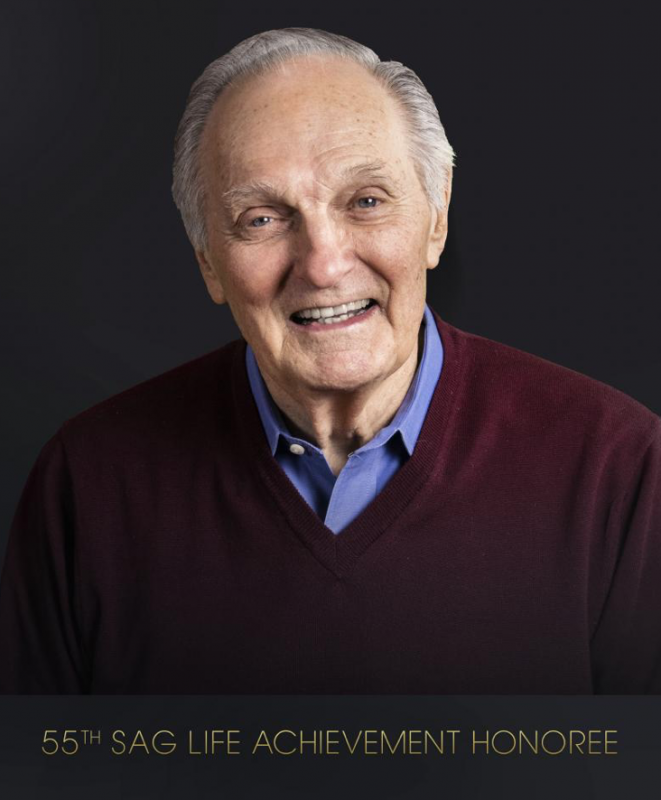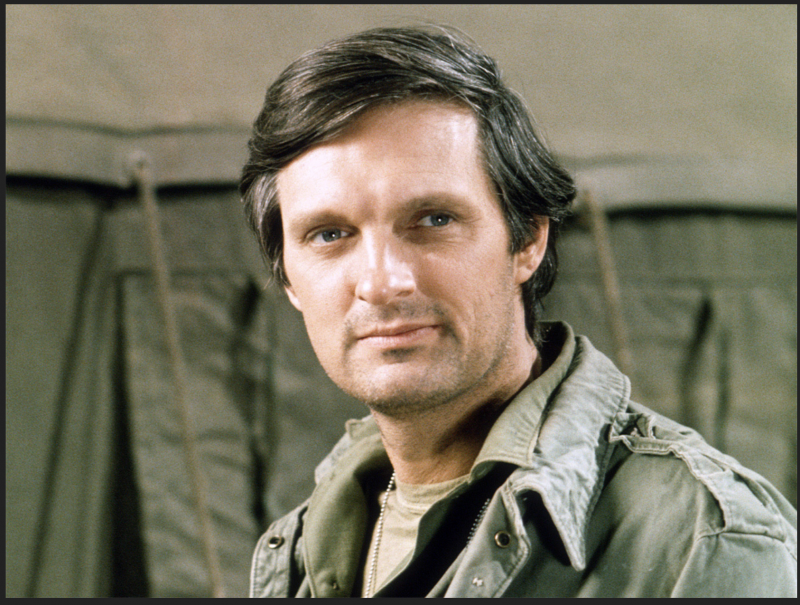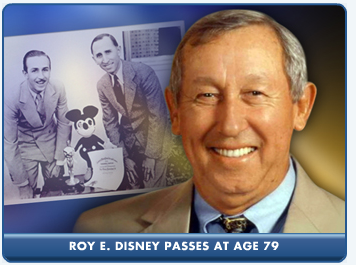|
|
||
|
Pro Tools
FILMFESTIVALS | 24/7 world wide coverageWelcome ! Enjoy the best of both worlds: Film & Festival News, exploring the best of the film festivals community. Launched in 1995, relentlessly connecting films to festivals, documenting and promoting festivals worldwide. Sorry for the interruption, we needed to correct and upgrade some modules. Working on a new website. For collaboration, editorial contributions, or publicity, please send us an email here. You need for put your full detail information if you want to be considered seriously. Thanks for understanding. User login |
MarlaLewinGFVReporting on movies, film festivals, film production, premieres, movie events, industry trends and plays from around the world  The Global Film Village: Film Execs look at the state of Indie Distribution
by Marc Halperin The Sundance Film Festival is in full swing, some films are being bought and others are not. Understanding the reasons for these decisions is critical for independent filmmakers. Film Independent recently produced a round table that focused on indie distribution. It’s an offshoot from their Filmmaker Forum, which was held over an entire weekend in early October. This discussion looked at the economics of distribution; traditional, DIY, and digital strategies. The panelists also addressed the state of film distribution: past, present, and future. Their goal throughout this series was to give filmmakers the unvarnished truth and to look at the industry as it exists. The panel was Moderated by: Tom Bernard, Co-President, Sony Pictures Classics. Panelists included: Jonathan Sehring, President, IFC Entertainment, Tony Safford, Executive Vice President of Worldwide Acquisitions, Fox Searchlight, Udi Epstein, 7th Art , Jeff Dowd, Producer’s Repand Eamonn Bowles, President, Magnolia Pictures.
Tom Bernard/Moderator: How do you see the current economic downturn effecting your buying?
Jonathan Sehring: We’re more cautious, but we still buy a lot. Tom bought a lot. Festival Buying Fever is over. We find that auctions put guys out of business.
Tony Stafford: We look at festivals as a defining bar. Putting a film in front of an audience and critics makes it easier to narrow the field. It is our job to get advance looks at films but is better for the filmmaker to screen a finished film at a festival in front of an audience and critics.
Jonathan Sehring: Getting critical support for your film is far more important today because it is hard for a distributor to raise a film’s profile especially first time filmmakers with films that don’t have a known cast.
Tom Bernard: If your at a film festival without the right professional team it is a recipe for disaster. You need a Producer’s rep and a publicist. You need them to get the money for your film, you must have the right screening spot, materials, stills, synopsis, and you must choose the right festival to premiere.
Jonathan Sehring: You also have to be aware of the the costs involved, traveling, submission fees, preparation, all of these costs add up and are substantial so plan for them. It will cost you $30-50,000 to do this properly.
Tom Bernard/Moderator: How many films did you buy this year?
Jonathan Sehring: We bought 100 films but not all for theatres, only about 25 of those.
Tom Bernard: We bought 20-30 but we buy everywhere all year long not just at festivals.
Tony Stafford: We don’t make offers or deals on a lot of films.
Udi Epstein: We lost a picture we wanted at Sundance but as the release date got closer the original buyer couldn’t get it together so we stepped in after they dropped the ball.
Eamonn Bowles: Magnolia started back in 2001 at the time of 9/11 with just two people. Today we have a team of 28 but we are mostly a VOD company. We buy about 25 films a year mostly at the big 3 festivals: Toronto, Cannes and Sundance, another major sources for us are agent submissions. Since the collapse of the dependents we have done really well. The state of the economy has also meant that there is a more realistic approach to production and distribution costs. Too many of the other players were chasing award releases with pictures that didn’t do business. They may have won awards but they lost money on these films because they spent too much.
Tom Bernard/Moderator: Let’s look at VOD as a factor in the market today.
Jonathan Sehring: Since 2006 we have done theatrical and VOD at the same time. We spend very little on P&A. We own one theatre in New York City. When we started this we could only play 5 theatres in the country including Laemmle, but today most independent theatres are willing to play Day and Date with VOD.
Tony Stafford: There has definitely been a collapse in the windows. The MPAA is even trying to create an official Day and Date scenario.
Jonathan Sehring: We will pay overages on over 70% of the movies that we acquire. We use theatrical distribution to create a connection with an audience that carries through the other markets. We’ve paid over a million dollars in overages. (That would actually workout to only $10,000 a picture based on 100 films acquired, even less if this refers to more than a year’s acquisitions.)
Tom Bernard: You must be an empowered filmmaker. You must understand the options available to you and determine if this type of deal works for you. For smaller films these might be the only deals available.
Eamonn Bowles: If there is no awareness of your film then there is no payoff with direct VOD. We are finally starting to get some checks but this is not a viable business. We recently released Princess in Nebraska in conjunction with the director’s other film which was in theatres. YouTube got several 100,000s of views of the movie and we got a check for $18.00.
Tom Bernard: Piracy is the biggest problem for us in regards to ancillary markets.
Tom Bernard/Moderator: How do you see film festivals in today’s market?
Jeff Dowd: Make sure your film is ready. Don’t rush it for a festival date. If you don’t know until Thanksgiving that you are accepted to Sundance it may be difficult to get it ready in time. You don’t want to make your premiere a research project. You want to present your film in the best possible manner. Take the time to do research screenings to improve your project.
Eamonn Bowles: This is a business of perceptions if your film doesn’t sell after its first festival than it will go down in value. But Sundance isn’t the be all and end all that some people make it out to be. There are other festivals.
Tom Bernard: For certain films that will not get a theatrical release you can use film festivals to get the word out.
Tony Stafford: At Fox Searchlight we release 10 films a year and spend millions of dollars on each one.
Eamonn Bowles: To give a film a legitimate theatrical release the low end costs a 1/4 of a million dollars and the high end could be anywhere.
Udi Epstein: Most self distribution theatrical releases don’t work out well. Filmmakers who think they can do it better themselves are delusional. They don’t know the job and they will most likely fail.
Tom Bernard: You don’t need to pay Peter Broderick for his advice. “He only knows what you don’t know. He doesn’t know what you need to know. He has some of those old indian secrets much like a traveling medicine show”.
Jonathan Sehring: In our model we work with filmmakers to help market their movies. We handle so many films that we just don’t have the time to concentrate on all of them so you need to help us.
Eamonn Bowles: We love filmmaker input because you know your film and its audience. But in the end we are going to depend on our own expertise.
Tony Stafford: This really puzzles me you wouldn’t expect to tell Almodovar or Louis Malle to help you find their audience.
Tom Bernard: There is a difference between a master filmmaker and today’s filmmakers. Democratization has leveled more than the playing field. It has also lowered the quality of the finished product.
Jeff Dowd: People make buying decisions based on value. Too many american indies today don’t push the envelope. Joel and Ethan Cohn use their own sibling rivalry to make the situations worse and worse for their characters and have fun doing it. Too many indie directors don’t create real characters. You have to remember today with all of the competition good films don’t work. Great films do!
Tom Bernard/Moderator: Let’s talk about some common mistakes that filmmakers make.
Jeff Dowd: Please don’t make your own bad trailer for your website. They do far more harm. Use professionals.
Tom Bernard: The original pitch from the producers of Anvil, they were calling it a Spinal Tap rip-off. We didn’t want to see that. These were guys we could care about and that didn’t sell it. The film was finally sold through a self-distribution method. We are now moving into using FaceBook and other Social Media in a big way but that is only an additional tool. You still need to use traditional marketing methods to deliver an audience.
Jonathan Sehring: Print advertising is not dead. You still need to buy print to satisfy exhibitors.
Eamonn Bowles: Newspaper are still read by an older audience but they are not cost effective anymore. A Full page advertisement in the New York Times is over $100,000 at $1000 an inch and the LA Times is about half of that.
Tom Bernard: If you are planning on self distributing your film yourself an average of 25% film rental is probably about what you will get and then it takes a lot of time to collect it. The money that was owed to Summit on Twilight required them having the sequel to collect.
Eamonn Bowles: Just because you created a fan base on the Internet doesn’t mean they are going to show up at the theatres. It is a very big chasm to overcome. Awareness and the need to see are very different things. People go to the movies to get away from their daily lives. What is selling now is comfort food movies. We have had movies that did under $20,000 at the box office but did a million dollars in sales on VOD. The Great Buck Howard is a Tom Hanks produced film, theatrical was very disappointing. Cable operators were very excited about it and they gave us lots of free spots but it was our worst VOD of the year. But the DVD sold well and airline sales were over $500,000.
Tom Bernard/Moderator: What percentage of your acquisitions were first time filmmakers with unknown casts?
Jonathan Sehring: They are the most naive and most difficult to do business with. Because we own IFC and Sundance we have an advantage dealing with these types of films because of our audience. We pay no advance or a small advance and we pay the producers in 18 months. Will you get wealthy with this deal? No.
Eamonn Bowles: “IFC’s Cash for Clunkers”.
Tony Stafford: On Napoleon Dynamite we paid $500,000 today we would probably pay less. There is no relation between your budget, the acquisition cost, and the value of the film in the marketplace. First you’ve got to really love the movie because we will have to live with it for a very long time, and at Fox Searchlight we really love these movies we buy.
Jeff Dowd: In this business these people(here) buy these movies for that reason, and the public goes to see them for the same reason.
Tony Stafford: “I think it is hard to model returns for investors right now.”
Tom Bernard: When the current Netflix and HBO deals are up we will see a major change. What will the future values be because of VOD?
Jeff Dowd: Screen Gems believes that having real actors names attached does mean something and can be calculated in assigning value.
Tom Bernard/Moderator: Why do you think that Hulu and YouTube don’t mean anything at this point?
Eamonn Bowles: Advertisers just aren’t buying anything right now.
Tony Stafford: Consumers are used to getting things for free on the internet. It will take time to change this perception.
Tom Bernard: We gave it away originally to get people used to using the internet and now they want everything for free. Redbox and Netflix are transitional delivery sources and will probably go away eventually.
Udi Epstein: Distribution of commercially challenged films is a problem. It is a buyer’s market. There are lots of first time filmmakers because if they don’t get a return on their investment they don’t get to become second time filmmakers.
Jonathan Sehring: In this environment it is tempting to buy films for no money advances.
Eamonn Bowles: We aren’t paying advances. We simply lay out 3 different types of deals and let filmmakers choose which one they are comfortable with.
Jeff Dowd: Ted Mundorff of Landmark Theatres recently told me he is afraid that 2 years from now there will be very few good independent films to play.
Tom Bernard: Every city has at least 2-3 festivals right now. There is an infrastructure in most large cities to support filmmakers. What is missing is great indie films. 28.01.2010 | MarlaLewinGFV's blog Cat. : airline Business Business Business Relation Cannes Cannes Co-President Company Employees Number Director Eamonn Bowles Eamonn Bowles Entertainment Entertainment Ethan Cohn executive vice president Facebook Film Filmmaker Forum food Fox Searchlight HBO Hulu IFC IFC Entertainment Independent film Jeff Dowd Jeff Dowd Joel Cohn Jonathan Sehring Jonathan Sehring LA Times Louis Malle Magnolia Pictures Magnolia Pictures Major Marc Halperin Nebraska Netflix New York City Person Career Peter Broderick president president princess Producer Producer's Rep Quotation Repand Eamonn Bowles Sony Pictures Classics Sony Pictures Classics Sundance Sundance Sundance Channel Sundance Film Festival Technology Technology Ted Mundorff the LA Times the New York Times the New York Times the SUNDANCE Film Festival Tom Bernard Tom Bernard Tony Safford Tony Safford Tony Stafford Toronto Utah Visual arts Worldwide YouTube FILM
|
LinksThe Bulletin Board > The Bulletin Board Blog Following News Interview with EFM (Berlin) Director
Interview with IFTA Chairman (AFM)
Interview with Cannes Marche du Film Director
Filmfestivals.com dailies live coverage from > Live from India
Useful links for the indies: > Big files transfer
+ SUBSCRIBE to the weekly Newsletter DealsUser imagesAbout MarlaLewinGFV Lewin Marla Lewin Marla (Global Film Village)
htttp://www.magiclampreleasing.com http://www.globalfilmvillage.com
View my profile Send me a message The EditorUser contributionsUser links |
























 Marla is a producer, playwright, screenwriter, publicist and now a journalist. She attends 12 to 20 film festivals per year. She has spoken on filmmaking at many festivals including Cannes and SXSW.
Marla is a producer, playwright, screenwriter, publicist and now a journalist. She attends 12 to 20 film festivals per year. She has spoken on filmmaking at many festivals including Cannes and SXSW.



Comments (1)
White Men Can't Dance best break dance film of the year PG
This film White Men Cant Dance is based on a true story,
This film White Men Cant
Dance is a family oriented film, based on hope, inspiration, Break dancing, comedy.
, The best break dance film of the year. We have the American Idol debuting her song, the bestbreak dancers from around the world. We are going to give a percentage of the profits to the Childrens Miracle Network. We had a sneak premier in NY City, we had a 15 min standing ovation.
www.whitemencantdance.com see trailer
noannie11@aol.com for coorespondance
Dove awarded PG rating
critic states - Best break dance film ever made on east coast.
Want to get film in many festivals please contact us.